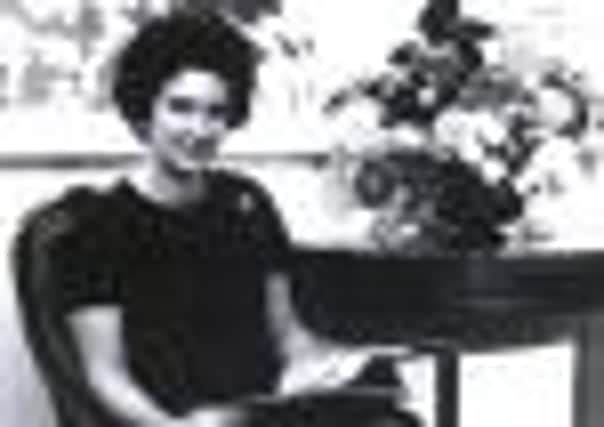Obituary: Jane Kellock; secretary of the Africa Bureau who provided valuable support to leaders of many independence movements


To most readers, even those most closely connected with the end of the colonial era in the 1950s, the name of Jane Kellock may not be familiar. They may, however, recognise the name of Jane Symonds, her maiden name.
As secretary of the Africa Bureau which she had joined in March 1952, she was closely involved with the various African freedom movements which had been springing up in London. In that position, along with her colleagues Mary Benson and the Rev Michael Scott, she was on first-name terms with the leaders of these movements, soon to be their presidents, such as Kwame Nkrumah of Ghana, Julius Nyerere of Tanzania, Jomo Kenyatta of Kenya and Hastings Banda of Malawi.
Advertisement
Hide AdAdvertisement
Hide AdAt that time it was to her that they sought support, and sometimes guidance, for information, facts and figures, that they needed in their lobbying of successive UK governments, some sympathetic and others not.
Jane Symonds was born at Osmington, Dorset, in 1925, and after completing boarding school at Priorsfield in Surrey in 1942 she joined the Wrens until the end of the war.
She became interested at an early date in the freedom movements arising in Africa before she joined the Africa Bureau, and became its secretary in 1957.
As these differing countries moved forward to self- government and independence she was connected closely with their delegations as they came to London to the conferences to negotiate their independence.
It was to her spacious flat in London that the delegations went on occasion to discuss that day’s events, and planned the agenda for the next day. Her hospitality to them all at that time was legendary.
Many a proposal put forward in these conferences came from her with her ongoing experience.
She continued to work for the bureau, and its successor organisations for more than 23 years. She also worked closely with Rev Michael Scott on his many visits to the United Nations, endeavouring on behalf of the South West African people to stop the efforts of the South African government incorporating that country, now know as Namibia, into the republic.
Despite these commitments she found time to go on the Aldermaston marches, and became interested in Liberal politics.
Advertisement
Hide AdAdvertisement
Hide AdShe travelled widely throughout Africa before and after these countries achieved their independence, meeting her old friends, now presidents in their own countries.
As far as Malawians were concerned, her flat in London was host to their delegations at their self-government and independence conferences at Lancaster House and Marlborough House, London, in 1960 and 1962, and she had always a particular affection for that country.
After the state of emergency was declared in Malawi on 3 March, 1959, Dingle Foot QC was briefed to defend the interests of Dr Banda and his three senior colleagues then detained in Gwelo Prison, Zimbabwe, formerly Southern Rhodesia.
Along with Dingle Foot was another younger barrister, Tom Kellock. They put their clients’ case to Lord Devlin and his colleagues on the Devlin Commission.
Jane became involved with some of the administration of this in London, and there she met Tom Kellock. Their friendship blossomed and they were married at the Temple Church in London on 18 March 1967. She was given away by Dingle Foot.
In 1965 she had already become the first women to sit on the board of the Commonwealth Development Corporation, and also found time to become a magistrate in Westminster, and to join the South Westminster Conciliation Committee, established under the Race Relations Board.
After leaving the bureau Jane Kellock, as she was then known, continued to take an active interest with her husband in African affairs, and particularly his keen personal interest in the Bugunda people of the newly independent Uganda.
Later Tom was appointed a judge at Nottingham County Court, and they spent many fruitful years there from 1976 to 1991.
Advertisement
Hide AdAdvertisement
Hide AdJane continued to sit as a magistrate in Nottingham. She also became a founder member of the Police Complaints Board.
Sadly, Tom died unexpectedly at their London flat in 1993. Jane decided to stay on at their Temple flat in London and continued to sit as a magistrate.
A few years later she returned to her home county of Dorset, where she continued to lead an active life. She was a friend of the West Dorset Opera, attending church, being sociable and hospitable to her many friends and relations, travelling widely, including to Australia, to visit friends and relations.
She continued in her late husband’s tradition of being an active supporter of the Liberal Party.
At the same time she still kept involved in African affairs, travelling to London regularly, while her health permitted, to attend meetings dealing with Africa.
In failing health she was supported by her late husband’s nephew and his family, and other friends and relatives.
Jane became a resident in a local nursing home around spring 2010 until her death on 16 February this year.
Her funeral took place at Weymouth on 12 March with a service of thanksgiving at St George’s Church, Fordington, Dorchester that afternoon.
It is the family’s intention to inter Jane’s ashes at the grave in Highgate Cemetery London where her late husband’s ashes are buried.
Colin Cameron,
Former Consul for Malawi in Scotland